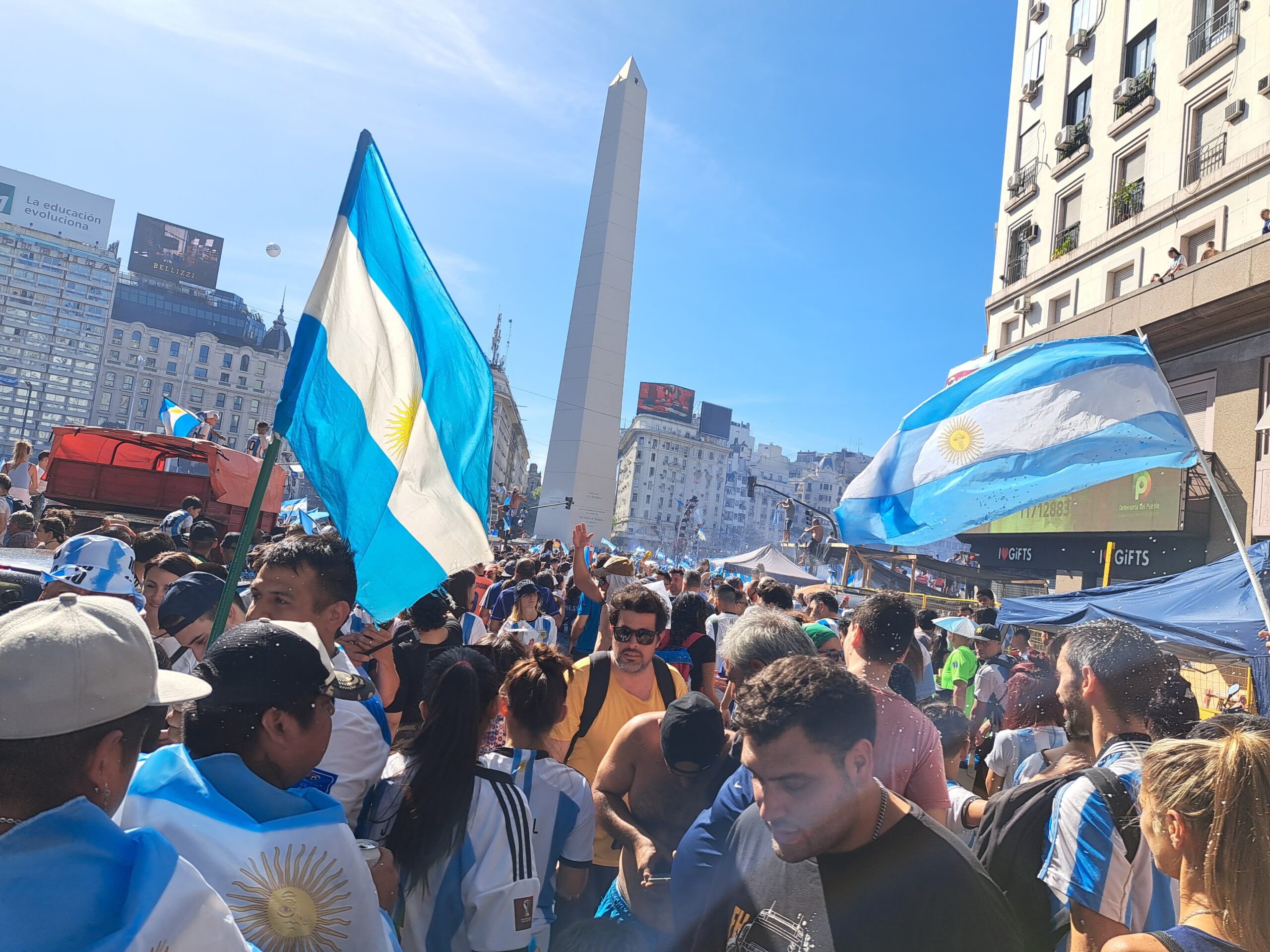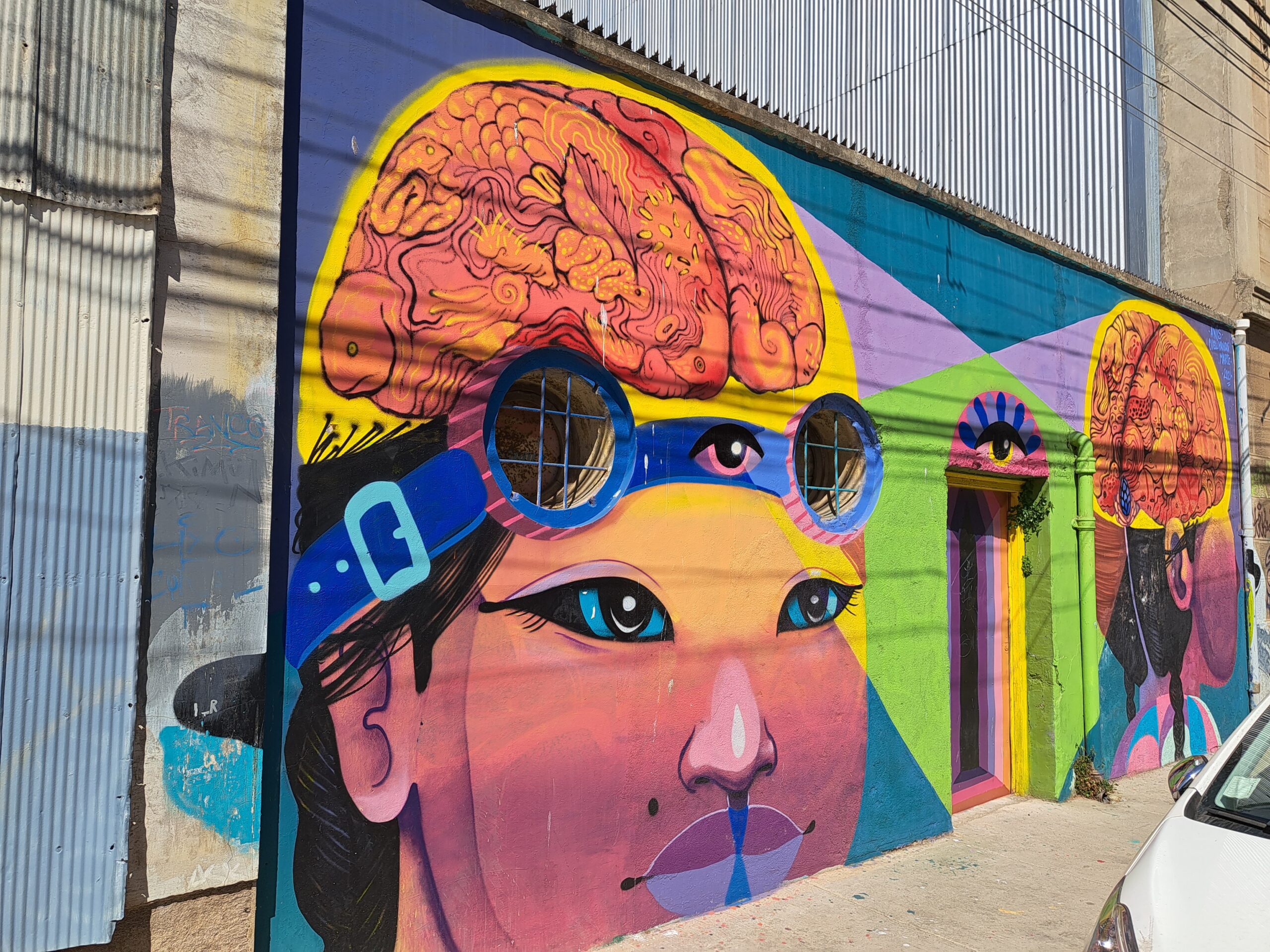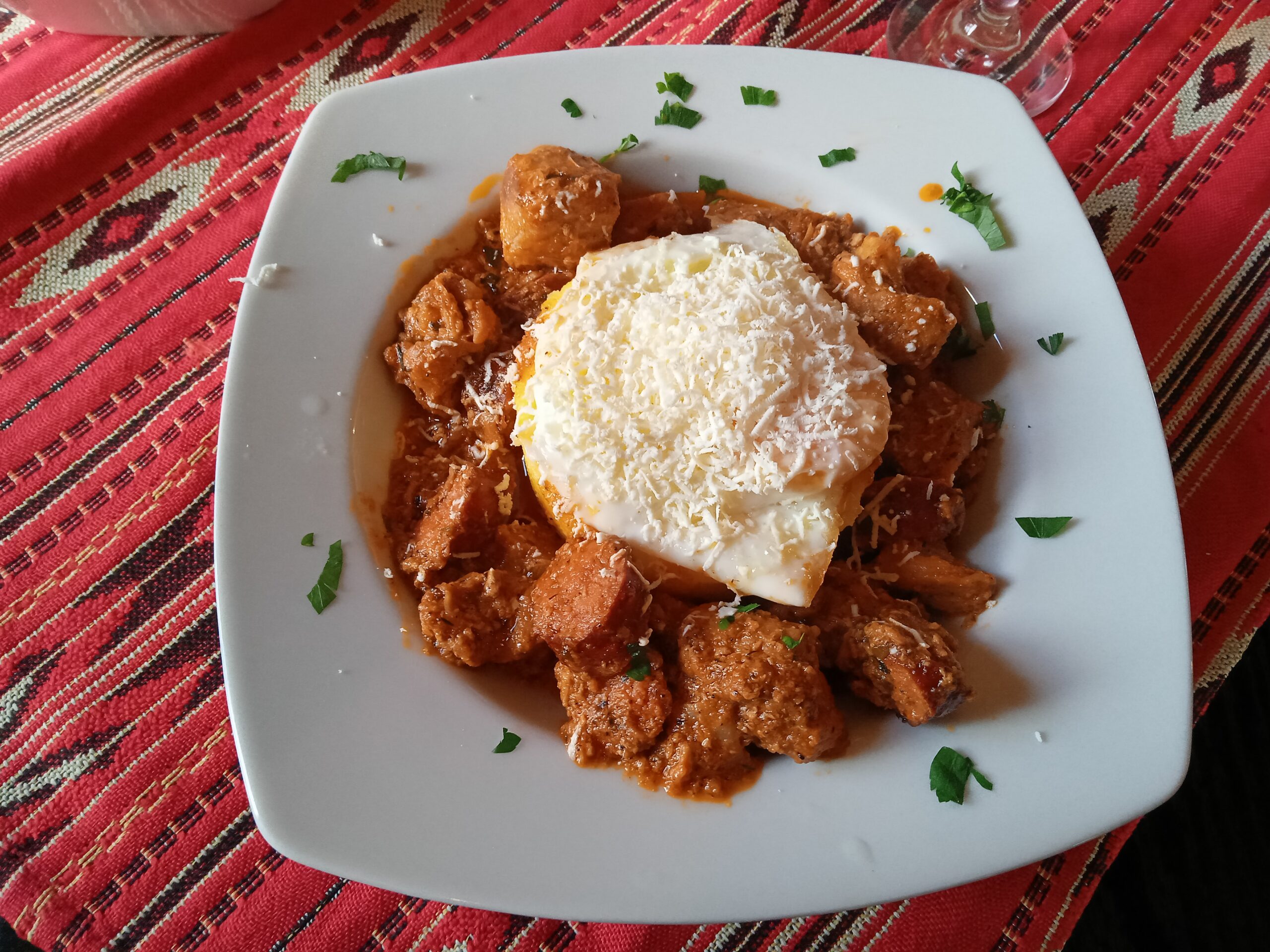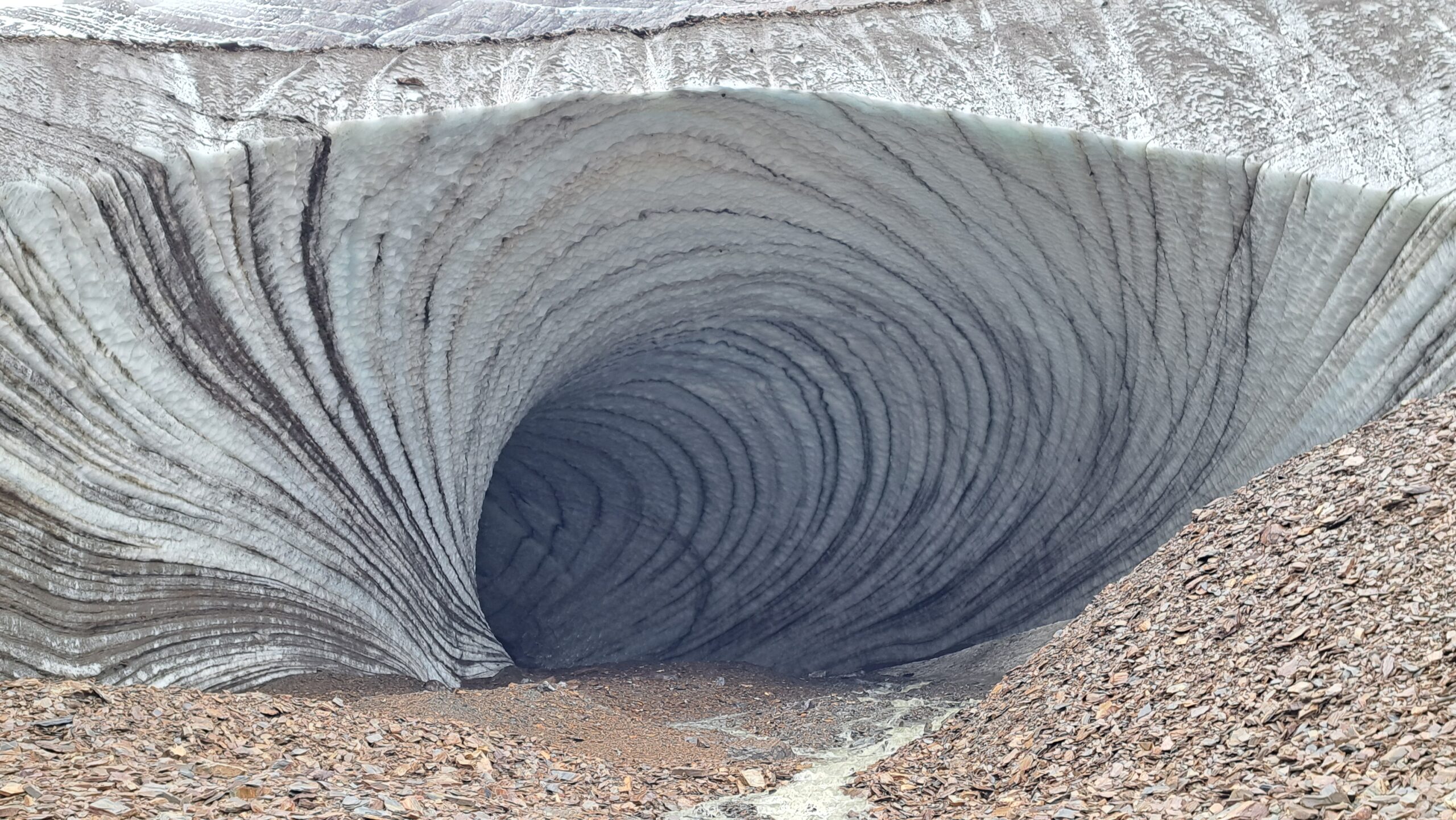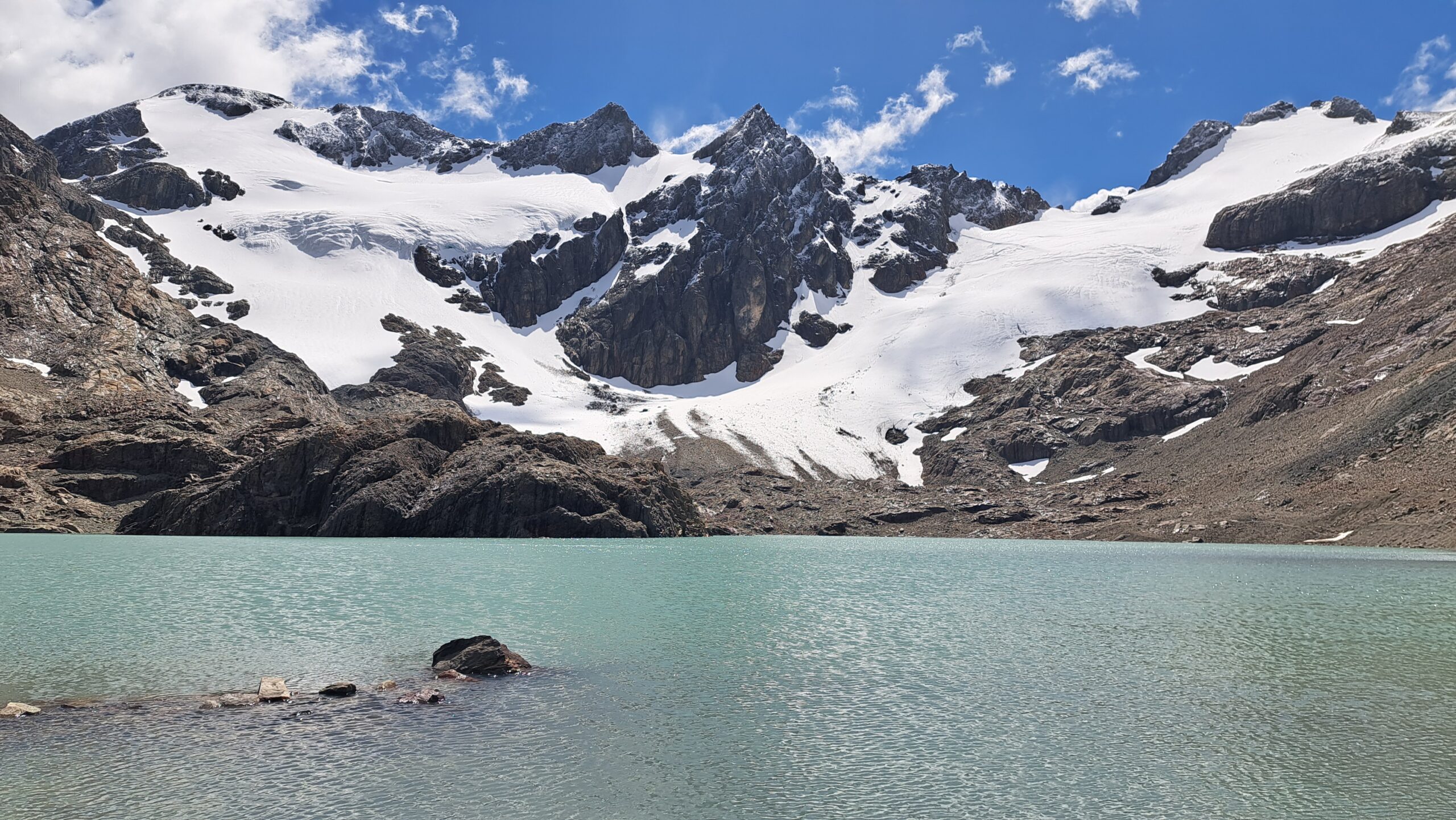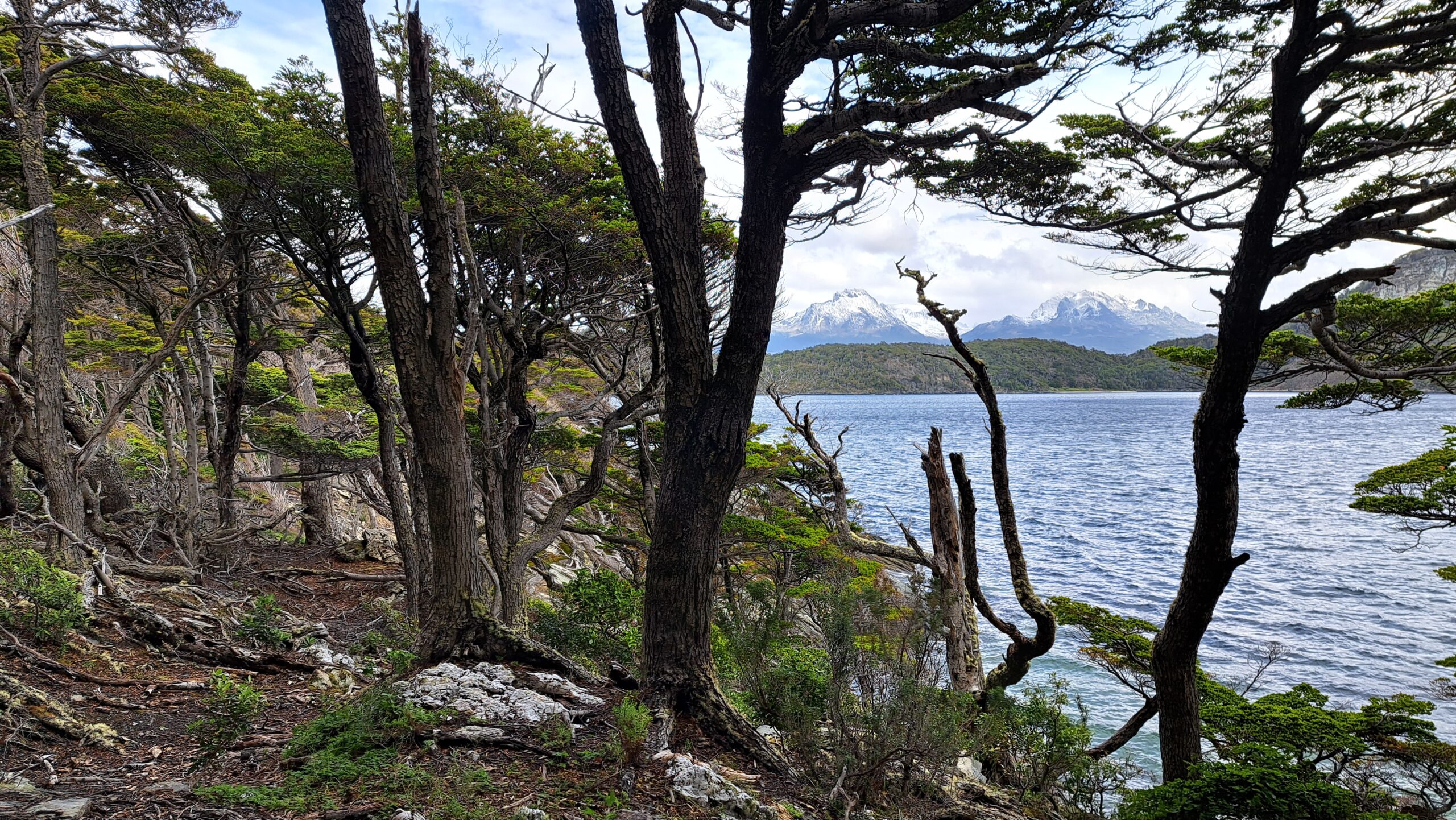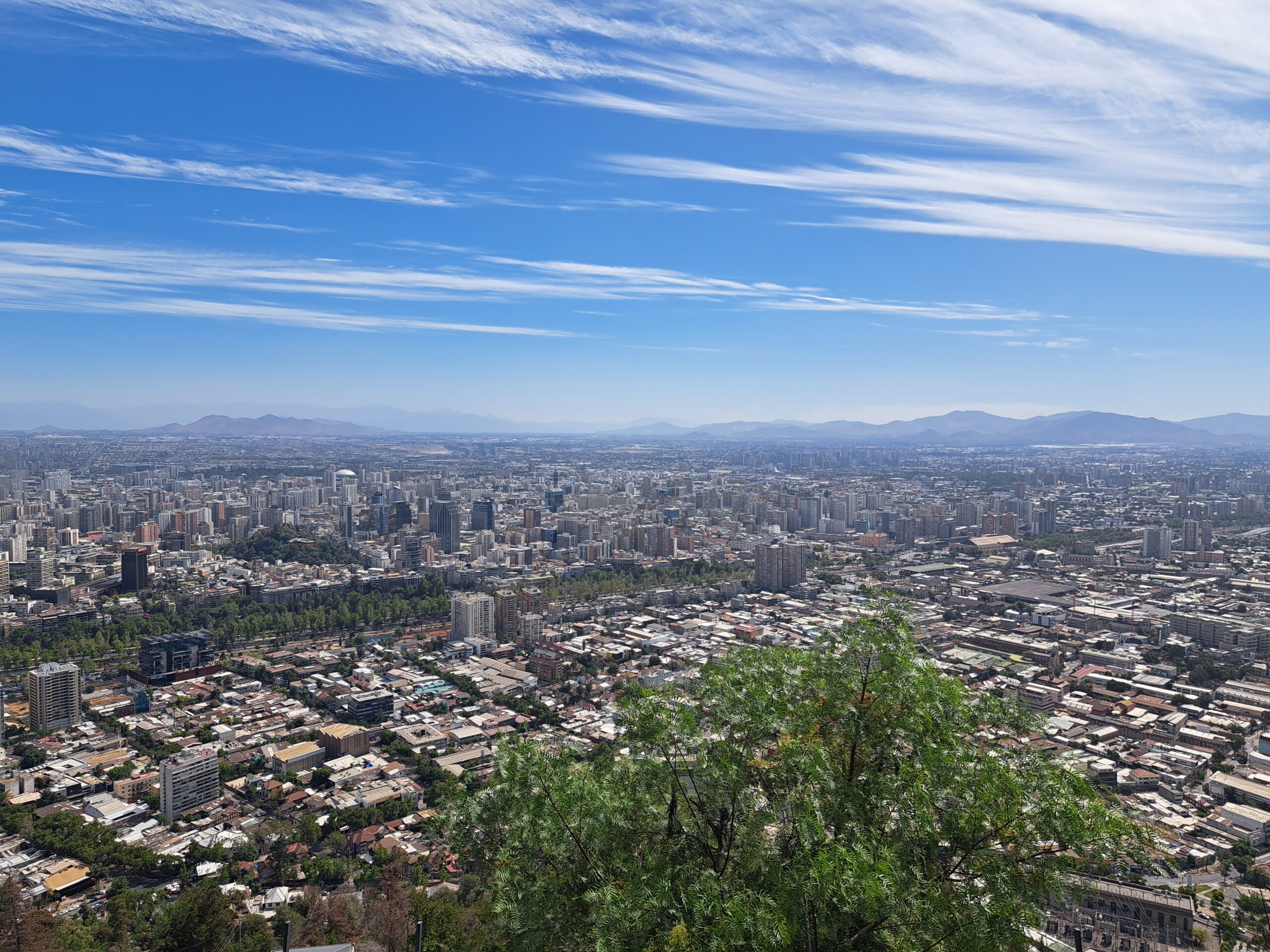
Stay Classy Santiago (C1-C2)
Most days I finished work early because of the time difference, which meant that I could explore the city in the afternoons. In the centre of Santiago at the foot of San Cristobal hill lies Barrio Bella Vista with its colourful street art, and restaurants and bars with street side tables, where you can sip something cold and soak up the ambiance. Not to mention it is home to some of the most *buzzing nightclubs in the city – an area I probably should have *hit up more at the weekends.
One afternoon, I took a very pleasant *stroll around the upmarket Barrio Bella Lastarria, a historical and now-hip neighbourhood with beautiful buildings, leafy streets and an *abundance of restaurants, cafés and boutiques. Another day, I checked out the *trendy spots of Barrio Italia and Providencia, which also have a *thriving food scene. But ultimately, all of the forementioned neighbourhoods were expensive *haunts and weren’t great places for solo travellers, and as such they weren’t areas I was *drawn back to.
I didn’t hate Santiago, far from it, but I just found it difficult to fall in love with the place, and I tried, I really did. I visited the highlights as recommended in the guidebooks, but I just couldn’t *bond with the place; it didn’t *get my juices flowing. I even *ventured out to some of the *grimier pockets of the city, which were *sketchy, but at least they were full of life and felt more authentic. Unsurprisingly, the poorer areas were more multicultural and as such felt more vibrant and livelier.
As with all cities there is a dark side – I walked through Centro one afternoon and it was dodgy, unexpectedly so; *pimps and very young-looking *hookers who had *flocked from some of the poorer corners of South America lined the streets. I was surprised to see men in broad daylight *scuttling into uninviting bars – a bouncer would open the door, to which I could only see darkness and hear music *blaring out, the men would then disappear into the *abyss, and the bouncer would quickly close the door behind, sealing in the sound as he did so. The Plaza de Armas, the main square in a lot of south American cities, was also *crawling with *scantily *clad prostitutes just *milling around the square and park, offering their services. It was a *stark reminder of the economic *disparities and inequalities of South American economies and a real-life *manifestation of the desperation that comes with that.
Many locals I spoke to complained about the rising crime rate, *attributing it to immigrants, as is often the case. From my observations, Venezuelans constituted a significant portion of *said immigrants; as the wealth gap between the haves and have-nots has widened, the *hardships of life in Venezuela have become too challenging for many, resulting in a mass migration to wealthier countries in the region. They’ve left their homeland to escape the terrible collapse of their economy, which has been in such a dire state that it claimed one of the highest levels of *inflation in the world in 2022, standing at a *staggering 234 percent, second only to Sudan. This *rampant inflation is referred to as hyperinflation. In Venezuela, it surged due to political instability and an economic *downturn, *exacerbated by a drop in oil prices. Hyperinflation then took hold as the government printed substantial amounts of additional money (Venezuelan Bolivar) to cover its expenses, leading to *volatility and other associated hardships, such as higher crime rates. In Santiago I encountered many Venezuelans working as Uber drivers and in bars, and they always displayed exceptional friendliness and openness.
As I’ve mentioned the downtown area in Santiago, especially around the bus station and the Plaza de Armas, did have a different vibe and felt a bit sketchy, but nothing I haven’t seen in other major metropolises around the world. Luckily, the area I was staying in wasn’t in a rough part of town, but I wasn’t exactly staying in a *swanky area either. Accommodation in the more desirable neighborhoods in Santiago *costs an arm and leg, and I wasn’t earning that kind of *dosh. I compromised; I found an Airbnb in a *blue-collar *nondescript part of the city called Macul. It certainly wasn’t a touristy area, in fact I didn’t see any other foreigners during my time there at all, which at least meant it was an authentic experience – the real Santiago. That said, the ‘real Santiago’ wasn’t one that I was particularly *enamoured with. Sometimes things are cheap for a reason, ‘you pay for what you get’ as the expression goes.
The area itself was built up and aggressively *dissected by busy roads leading out of and into the city centre. Macul is void of any parks, in fact there were no green spaces at all within walking distance from my apartment. There was a *smattering of fast food *joints, small family restaurants, and convenience stores in the *vicinity, but there really wasn’t much going for the area on the whole. It was *verging on working-class and as such there were no coffee shops or nice bars to hang out in, I couldn’t even find a decent gym. Whenever I tell someone from Santiago, that’s where I stayed, their first response is almost always “*Why on earth would you stay in Macul?”. “It was cheap”, I would tell them and *cringe.
My apartment was on the tenth floor of a fairly modern tower block. It was compact and had a small balcony that looked out onto the Andes in the distance, but that’s really where the upsides ended; drawbacks were plenty. It was situated on the corner of an intersection consisting of multiple carriageways, totaling 6 lanes of traffic. It sounded like a war zone out there. Motorbikes raced up and down until sunrise; so noisy were they, their exhausts emitted bangs like *cracks from an AK47 that *reverberated off my bedroom walls like thunder . Clearly, most bikes in the area had been modified, their sound baffles removed for performance reasons, regardless, they were a damn nuisance and I *cursed them nightly.
One night, I was lying awake, it was midweek and a public holiday the following day, so understandably this meant that the noise was even worse than normal – it really did sound like *all hell was breaking loose outside. Not being able to sleep, I listened to a *cacophony of blowing exhausts, singing and shouting, firecrackers, dogs barking… so many dogs and when one started up, they all went crazy.
Listening to the madness outside, my *mind raced: Travelling used to be a lot easier, didn’t it? I asked myself. Yes, I’m sure it did. Maybe that was it, I had had my time, I was now too old, too tired and had lost my passion for travel. Has my *wanderlust left me? How did I manage to pick the noisiest apartment in the world? What the fuck? Seriously, what the fuck? *What on earth! I just need peace and quiet! My inner voice screamed. Had the Romanian *curse followed me to Chile? Or even worse, perhaps, I don’t like travelling anymore…I’m just too old and *jaded from my travels. Maybe this was it, after all these years, my age had caught up with me, my *go with the flow luck had run out. I was cursed. These intrusive thoughts bubbled and simmered in my mind throughout the night.
As someone that has lived abroad for a good decade of my adult life and travelled to some pretty awesome destinations, I almost feel that being a traveller is part of who I am, my identity. However, after a *decidedly average start to life in South America, I was left feeling a little lost and unsure of myself. *Inevitably, we all face tough times, and they’ll shape and change you – hopefully for the better; this is how we build *resilience. There will always be challenges in life, and it’s how you deal with them that’s important.
With this in mind, I told myself to *get a grip…you’ve had two bad experiences *back-to-back, there’s no such thing as a curse. I’d had tough times before when I’d been living or travelling abroad, lonely, or even in hospital. This is nothing new, I told myself, travelling has its *peaks and troughs and just as in life, things don’t always go as you might hope, you may not get your dream job, the girl and things invariably go *awry. It doesn’t mean you can’t have some good moments on the way, it’s just part and parcel of travel, of life. That night I decided to pull my socks up and make the most of my situation. I pushed the negative thoughts to the back of my mind and eventually managed to drift off for a few hours’ sleep before work; as *cliché as it may sound the new dawn brought a sense of *rejuvenation.
Living in the area wasn’t all bad, *by all accounts I’m sure for the inhabitants of Macul it’s as nice a place as most to live. Maybe not so much for a solo tourist, but it did force me to make more of an effort to speak to the locals, *albeit in very basic Spanish. Some days when I didn’t go into the centre, chatting to locals was the only interaction I could get, so I was thirsty for it and drank it up at every opportunity. I found a local family restaurant that was open for lunches only, where you could get *a feed for about £5 – another plus side to being off the tourist circuit. It was such good value for money in fact, that I went every day. I soon built a good rapport with the ever so bubbly owner. She would practise her English and I my basic Spanish – maybe, this is why she gave me *hearty portions, or perhaps, she just wanted to make a stranger feel welcome.
The decision to leave Santiago early
I eventually booked an excursion out to those Andes mountains, that I’d been gazing upon for so long, through a company called Viator, which offers tours and day trips and has a strong presence all over South America. Another similar company is Get My Guide, an alternative and more independent option is to book trips through hostels, even if you’re not staying in them. Trips and activities through companies like this are a great way to meet people and get out there and see what the area has to offer. However, after waiting by myself to be picked up in the dark for over an hour at 5 am in a semi-sketchy area near Macul subway station and then driving out to the mountains, we were turned back because of a landslide – maybe, I am a little cursed after all!
It didn’t matter, by this point I was feeling very isolated and wasn’t enjoying myself. I had come to the realisation that I wouldn’t be happy where I was. I had *stuck it out for as long as I could, it was time to *cut my losses and move on. By this point England were out of the world cup having lost to France in the quarters, but football fever was still in full swing in Argentina. This, coupled with the advice from Peter, the currency trader I met in Valparaíso, about the Blue Dollar and his amazing experience in Argentina, fresh in my mind. I also had friends in Buenos Aires; the timing was perfect.
I *took a hit on the accommodation, leaving about a week early. I wasn’t too worried as I had got a 50% discount for a month’s booking. To make up for the small financial hit I took I decided to punish myself by taking the overnight bus to Buenos Aires. It was my first of many night buses on the continent and actually I would later discover one of the better ones…it had a toilet, a seat that reclined and there were no livestock – what more could you want? The 1460km journey took about 24hrs, but *oh boy was it worth it.
………………………………………………………………………………………………………………………………………………………………………………………………………………………….
Final thoughts on Santiago
The people:
I had heard Chile was very conservative; and my experience was that the people of Santiago (Santiaguinos- male, Santiaguinas -female) certainly seemed quite serious, traditional and reserved, in some respects. That said they were quite liberal in others; it was common for the young generation to have tattoos on show and not uncommon to see same sex couples holding hands and *canoodling in public. A young Santiaguina used the metaphor that there was in her words ‘a cloud of depression over the city’, to describe the mood of Santiaguinos. I understood what she meant, but perhaps, this is a bit *harsh. I found them to be kind, approachable with a dry sense of humour. I also didn’t ever get *hassled when walking around, which isn’t always the case when travelling.
The city:
Neighborhoods like Barrio Lastarria, Italia and Provedencia are for sure nice, but just way too expensive for long term tourists on a budget like me. Whenever, I met up with expats we would go to bars and restaurants in those areas, but it wasn’t *sustainable, I simply couldn’t afford to keep up. I felt that the city was pleasant enough but didn’t offer enough to warrant staying for longer. Perhaps, if you live there, earn a good wage and are tapped into the social fabric of the city or the ex-pat scene, then it’s a great place to live. Santiago is a good jumping off point for other places like the Andes and Maipo Valley, a region famous for its vineyards. It is often the first port of call for international tourists visiting Patagonian Chile and the Atacama Desert. *Frankly, however, for me as a tourist, not wanting to *ruffle any feathers, but I’d honestly have to say a few days in the capital would *suffice.

